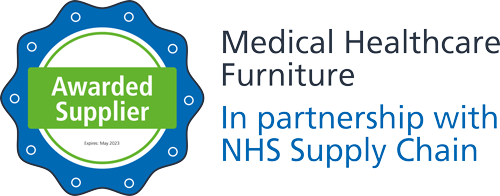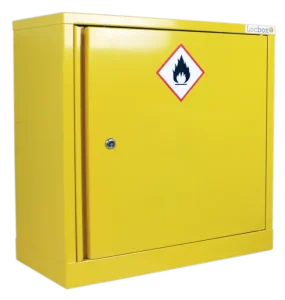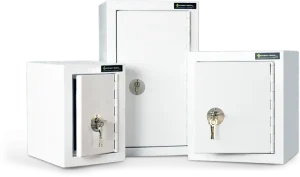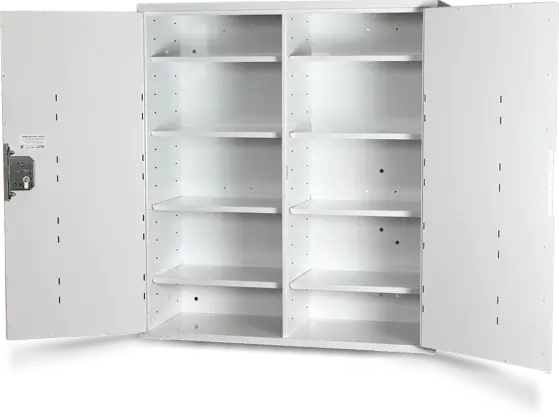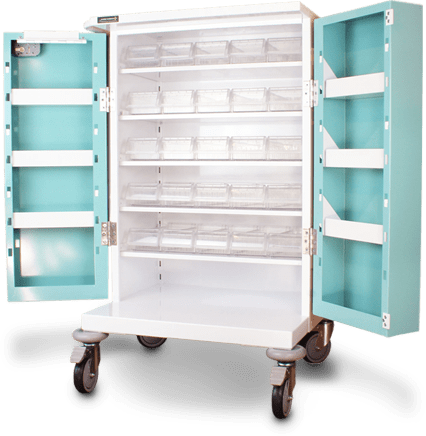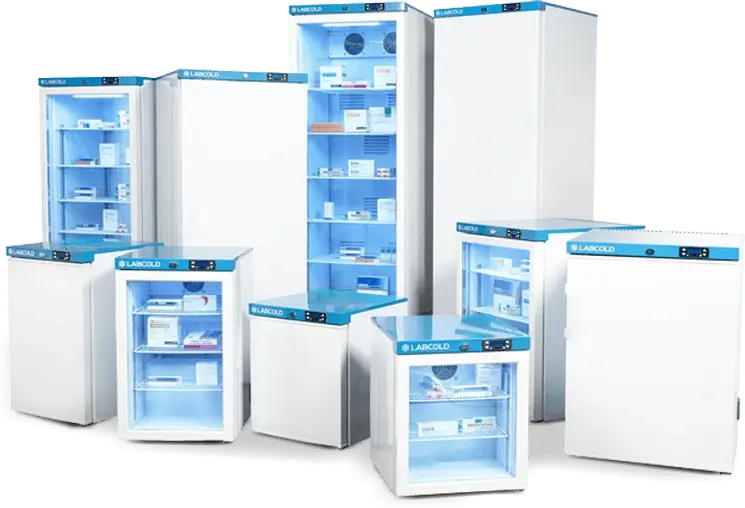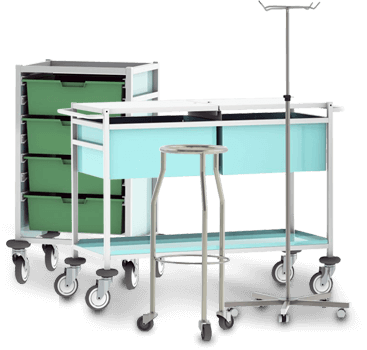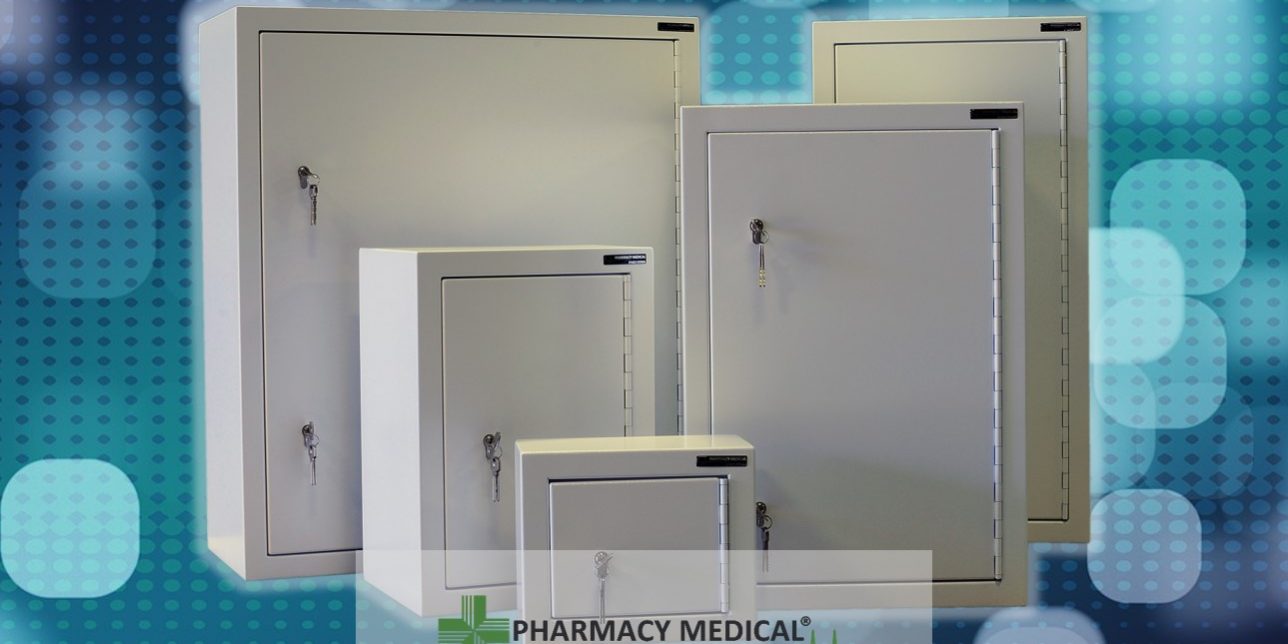Where Are Controlled Drugs Cabinets Required?
In the UK, strict regulations govern the storage of controlled drugs (CDs) to ensure safety, prevent misuse, and maintain accountability. One of the key elements of this regulatory framework is the requirement for a controlled drugs cabinet (CDC). This blog explores which locations in the UK are mandated to have these cabinets and why they are crucial in healthcare settings.
Click here to see our range of Controlled Drugs Cabinets
What is a Controlled Drugs Cabinet?
A controlled drugs cabinet is a specially designed, lockable unit used for securely storing medications classified as controlled substances under the Misuse of Drugs Regulations 2001. These cabinets must meet specific security requirements, such as being made of metal, bolted to a wall or floor, and fitted with robust locks that comply with British Standards. The purpose is to safeguard drugs that are prone to abuse, ensuring that only authorised personnel have access. All Pharmacy Medical Control Drugs Cabinets meet or exceed these requirements
Who Must Have a Controlled Drugs Cabinet?
Several healthcare facilities and service providers in the UK are required to have a controlled drugs cabinet as part of their legal and professional obligations. These include but are not limited too.
- Pharmacies
Pharmacies, whether operating in the community or within hospitals, are required to have a controlled drugs cabinet. This applies to both NHS and private pharmacies. Community pharmacies play a crucial role in dispensing controlled drugs prescribed by GPs or specialists. To ensure patient safety and reduce the risk of theft, these pharmacies must store Schedule 2 drugs (such as morphine, oxycodone, and fentanyl) in a secure cabinet. Some Schedule 3 drugs, like temazepam, are also subject to this requirement, depending on their potential for misuse.
Pharmacists must maintain clear records of all controlled drugs transactions, including their receipt, dispensing, and disposal, which further reinforces the importance of a secure storage system.
- Hospitals
Hospitals are another key location where controlled drugs cabinets are mandatory. In hospitals, controlled drugs are used for a variety of purposes, including pain management, anesthesia, and palliative care. Because of the high volume of these medications in hospitals, multiple CDCs are often required, usually located within wards, operating theatres, and pharmacies.
Ward-based cabinets ensure that controlled drugs are readily available to nurses and doctors for administering to patients but remain secure from unauthorised access. In critical areas such as intensive care units (ICUs), operating theatres, and emergency departments, these cabinets are essential to ensure the safe handling of potent drugs, often required in urgent medical situations.
- Care Homes
Care homes are legally required to have a controlled drugs cabinet if they provide nursing care or deal with patients who require controlled medications. The Care Quality Commission (CQC) in England, Care Inspectorate Wales, Care Inspectorate Scotland, and Regulation and Quality Improvement Authority (RQIA) in Northern Ireland enforce these regulations, ensuring the safe storage and administration of controlled drugs to elderly and vulnerable patients.
Controlled drugs in care homes may be used for long-term pain management, palliative care, or other conditions, such as epilepsy. Proper storage in a secure cabinet helps to protect these drugs from being misused or stolen, while ensuring they are available for patients who need them.
- GP Practices
General practices (GPs) that dispense medications directly to patients, rather than issuing a prescription to be fulfilled by an external pharmacy, are also required to have a controlled drugs cabinet. This is most common in rural practices where local pharmacies may be limited, or in areas where patients have complex health needs.
GPs must store controlled drugs securely, particularly those used for pain management, sedation, or addiction treatment, such as methadone or diamorphine. For practices involved in the management of substance misuse or palliative care, the need for a CDC is even more pronounced.
- Veterinary Practices
Veterinary practices are also required to store controlled drugs in a compliant cabinet. Controlled substances are often prescribed for animals in pain or undergoing surgery, including drugs such as ketamine and methadone. As with human healthcare, the potential for misuse or diversion means that these drugs must be stored securely, with access restricted to authorised veterinary professionals.
- Private Healthcare Providers
Private healthcare providers, including private hospitals, clinics, and treatment centres, are also subject to controlled drug storage regulations. These facilities often administer the same types of controlled drugs as the NHS, particularly for surgical procedures, pain management, and mental health treatment. Therefore, they are required to install CDCs to ensure the same level of safety and accountability.
- Substance Misuse Clinics
Specialised clinics that treat patients with substance abuse issues must also adhere to strict rules around controlled drug storage. These clinics often manage opioid substitution therapy (OST), prescribing drugs like methadone or buprenorphine, which require secure storage in a controlled drugs cabinet. Clinics must have robust systems in place to ensure that these highly regulated medications are stored safely and administered in a controlled manner.
- Education Sector
A school may require a controlled drugs cabinet to securely store medications that fall under the category of controlled drugs, such as certain ADHD medications (e.g., methylphenidate) or strong painkillers prescribed to students. These medications, which are crucial for managing specific health conditions, must be stored safely to prevent unauthorised access, misuse, or theft. Having a controlled drugs cabinet ensures that only authorised staff, such as school nurses, can access these drugs, ensuring both compliance with legal requirements and the safety of students. It also provides peace of mind to parents and carers, knowing that the school maintains strict protocols for handling sensitive medications.
- Prisons or Secure Mental Health Facility.
A prison or a Secure Mental Health Facility would require a controlled drugs cabinet to securely store medications that are classified as controlled substances, such as opioid painkillers, sedatives, or medications used in substance misuse treatment programs (e.g., methadone). Given the high-risk environment of a prison, where the misuse or theft of drugs could lead to serious safety concerns, it is essential to tightly regulate access to these medications. A controlled drugs cabinet ensures that only authorised medical personnel have access, reducing the risk of diversion, abuse, or trafficking within the facility. Additionally, it helps maintain compliance with legal regulations, ensures accountability, and safeguards the health of inmates who rely on these medications for legitimate medical purposes.
Requirements for Controlled Drugs Cabinets
While the exact specifications can vary, all controlled drugs cabinets in the UK must adhere to the following key requirements:
- Construction: The cabinet must be made of certain thickness of metal, be of welded construction and have a robust lock. It must be fixed to a wall or floor.
- Access Control: Only authorised personnel, such as pharmacists, doctors, or nurses, should have access to the cabinet. Keys must be kept secure or in a key-coded safe, or electronic access control systems must be in place.
- Separate from Other Medicines: Controlled drugs must be stored separately from other medications that may not need to be stored in a CDC. Pharmacy Medical also manufactures and sells Medicine cabinets in a range of sizes for this purpose.
Controlled drugs are essential in healthcare, but their potential for abuse means they must be managed with extreme care. This is why the law mandates controlled drugs cabinets in various settings, from pharmacies and hospitals to care homes and veterinary practices. These cabinets play a critical role in preventing drug misuse and ensuring that controlled drugs are only accessible to those qualified to administer them. By adhering to these regulations, healthcare providers can ensure the safe and effective use of controlled substances, protecting both patients and staff.


